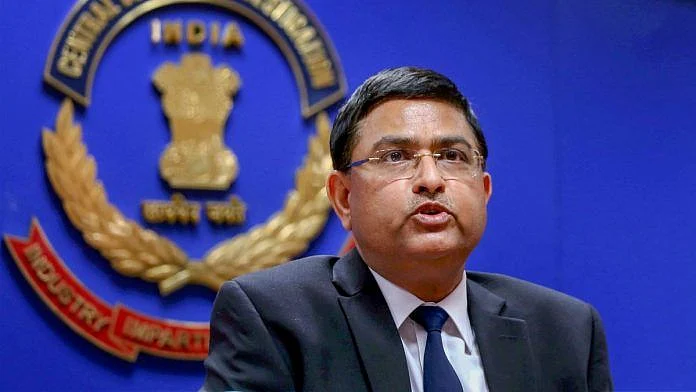In response to a petition filed by the Centre for Public Interest Litigation (CPIL) challenging the appointment of IPS officer Rakesh Asthana as Delhi Police Commissioner, the Centre told the Delhi High Court that Asthana’s appointment was done in public interest.
The affidavit filed by the Union Home Ministry said, “The prime consideration for the same (appointment) was that Delhi being the capital of the country has been witnessing diverse and extremely challenging situations of public order/law and order situation/policing issues, which not only had national security implications but also international/cross border implications”, news agency PTI reported.
The petition by the CPIL however, contends that the "impugned orders" are in "clear and blatant breach" of the directions passed by the Supreme Court in Prakash Singh's case and makes the following arguments:
Asthana did not have a minimum residual tenure of six months
No UPSC panel was formed for appointment of Delhi Police Commissioner
The criteria of having a minimum tenure of two years has been ignored
What the Centre Said in Delhi HC:
The Centre, in the affidavit filed through lawyer Amit Mahajan, said that Asthana’s appointment has been done in accordance with and after scrupulously following all the applicable rules and regulations, which is why no fault can be found in his appointment as Delhi Police Commissioner.
The Centre has reasoned that it felt a "compelling need" to “appoint a person as a head of the police force of Delhi, who had diverse and vast experience of heading a large police force in a large state having diverse political as well as public order problem/experience of working and supervising Central Investigating Agency(s) as well as para-military forces”, PTI reported.
Background:
Rakesh Asthana was appointed as commissioner on 27 July, just four days before his previously scheduled date of retirement, 31 July 2021.
After which the CPIL on 6 August, had filed a petition in the Supreme Court, seeking the quashing of the 27 July order issued by the Ministry of Home Affairs granting inter-cadre deputation and extension of service to Asthana just before his superannuation on 31 July, PTI reported.
‘Petitioner and the Intervener Are Busy Bodies’: Centre
Arguing that the plea is an “abuse of process of law and manifestly an outcome of some personal vendetta”, the Centre submitted that a PIL in service matter is not maintainable.
It added that the PIL, as well as the intervention of NGO CPIL, “deserves to be dismissed with exemplary costs”, PTI reported.
The affidavit further said, “The petitioner and the intervener are mere busy bodies. Both the petitioner and more particularly the intervener who claims to be espousing a public cause, never considered challenging appointment of eight (8) erstwhile Police Commissioners though they were appointed in the same manner as is done in the case of Respondent No 2 (Asthana). Such a selective exhibition of ‘public interest’ speaks volume about the motive behind filing this petition/intervention application/writ petition in the Supreme Court respectively by the petitioner /intervener only in case of the Respondent No 2.”
The petition also contended that a High-Powered Committee comprising the Chief Justice of India, prime minister and the leader of Opposition, on 24 May had rejected the central government's attempt to appoint Asthana as the CBI Director on the basis of the six-month rule as laid down by the Supreme Court in the Prakash Singh case.
On the same principle, Asthana’s appointment to the post of Commissioner of Police, Delhi must be set aside, the petition said.
On 25 August, the Supreme Court had asked the Delhi High Court to decide within two weeks the plea pending before it against Asthana’s appointment.
The matter will now be heard on 20 September.
(With inputs from PTI)
(At The Quint, we question everything. Play an active role in shaping our journalism by becoming a member today.)
